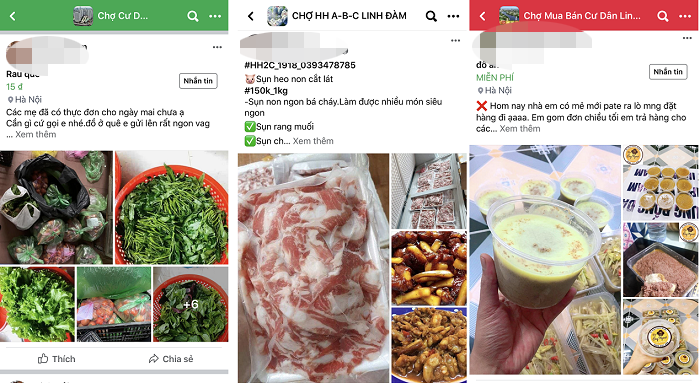Da Nang takes action to control quality of food sold online
The development of information technology is prompting the online food trade market to thrive on many social networking platforms. In particular, over the past 2 years, COVID-19 has prompted consumers change the purchasing method from online to offline. However, this fact also urges the competent authorities in monitoring, inspecting and controlling the quality of food sold online.
 |
| Illustrative image (Source: Internet) |
After COVID-19 was put under control, Ms. Nguyen Thi Nha, residing in Thach Thang Ward, Hai Chau District, a kindergarten teacher, became busier with her work at school. To save time spent on preparing meals for her family, Nha chooses online food shopping channels. This is a purchasing method that she and many of her friends have used effectively for many years, especially when the COVID-19 outbreak made trading and contact activities limited.
“I buy most of the food onlien. Daily food is bought in large quantities and put in the cupboard for gradual consumption. If you like regional specialities, let’s go to social networking sites to search, providers are always available in bloom or obtain through the introduction of acquaintances,
Similarly, Ms. Tran Thi Hoai Lan, a dweller in An Hai Bac Ward, Son Tra District goes to the market for food shopping less often than before. She usually makes the online purchase of food, which is both convenient and time-saving, and have her orders delivered to home or the place of work.
“Of course there are risks too. The seller may made the home delivery of wrong items. In such cases, I will return it or receive it with an uncomfortable mood”, said Lan.
In reality, food are put on sale on social networking sites such as zalo and facebook. Buying and selling food online is mainly done based on trust between sellers and buyers. It is worth mentioning that the online food business is mainly small-scale and spontaneous, and most sellers do not have any business licences.
Products offered for sale are labelled ‘home-made’ or ‘countryside’ food, without a certificate of food safety.
Even sellers are just intermediaries as they have no stores, specific premises nor expertise to verify the quality and origin of imported food.
Amidst the so-called online food ‘markets’ thriving on social networks, recently, the Food Safety General Department under the Vietnamese Ministry of Health has sent an official dispatch asking the municipal/provincial authorities and cities to take proper measures to control the online food trade nationwide.
For the time being, the online trade of food, including health-protective ones online is highly popular. However, taking advantage of this, some organisations and individuals have intentionally sold food of no origin, directly affecting the health of consumers.
According to Mr. Nguyen Tan Hai, Head of the Da Nang Food Safety Management Board, the online food business has been established for many years and has thrived since COVID-19 broke out.
Every year, this agency, in coordination with other competent units, conducts surprise inspections of the online food business.
“Food or catering service establishments under the management of the Da Nang Food Safety Management Board are all authorised, so the quality of their products sold online is also guaranteed. However, in reality, there are lots of food sold online that are processed at households on a small scale and without the management of the competent authorities”, said Mr. Hai.
Currently, many businesses have developed their own online food sales channels through registered websites and domains. Here, food business providers publicise full information on product quality, production address, the certificate of food safety and hygiene and policies on exchange and refund, delivery, transportation and payment of goods.
As for pieces of useful advice for customers, if buying through social media channels, they are highly encouraged to find out the reviews on products made by the first buyers first, learn about the seller's information and the origin of the food. Absolutely do not buy food on fanpages on which information on sellers and production establishments is absent.
Reporting by PHAN CHUNG – Translating by A.THU